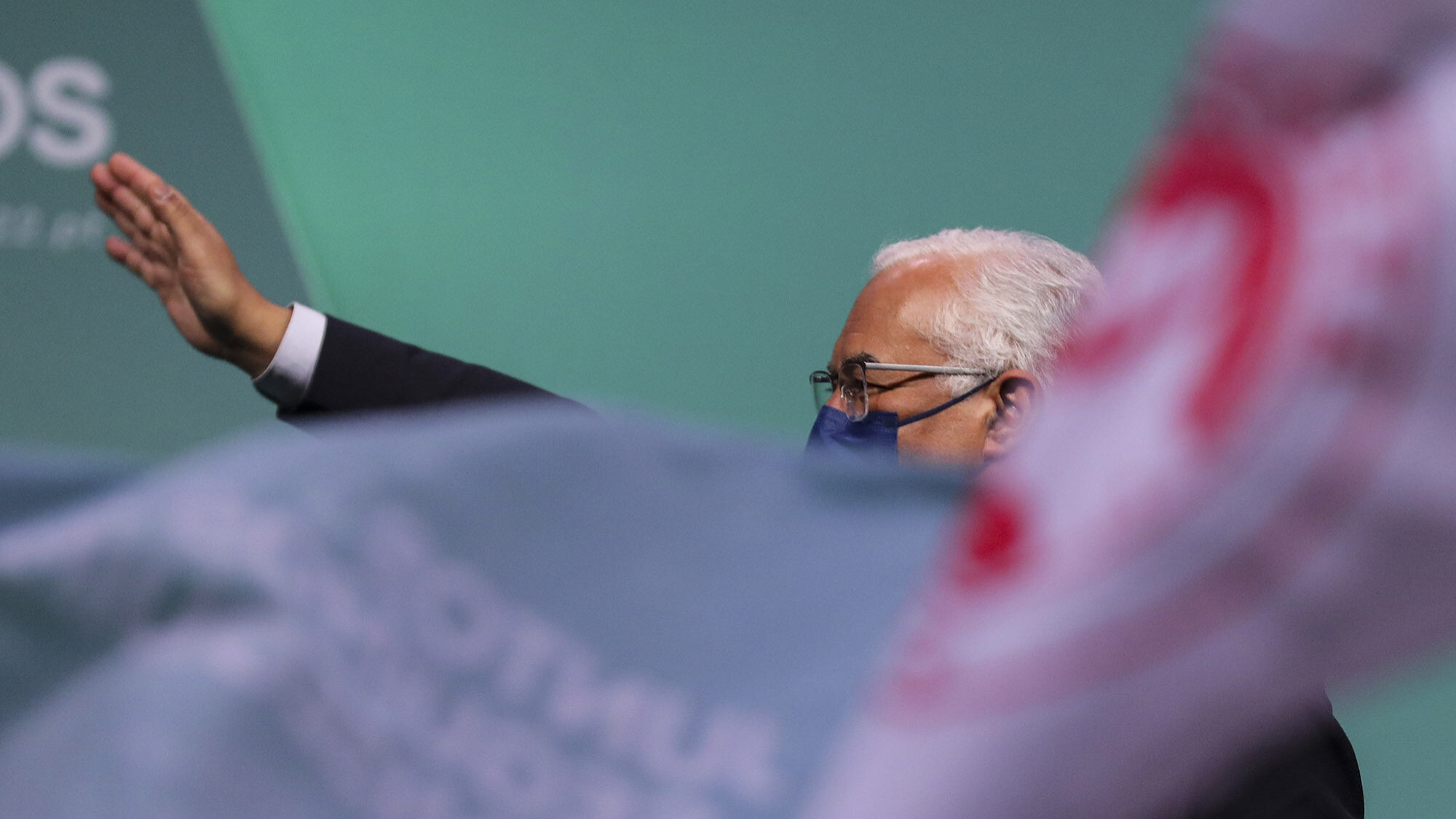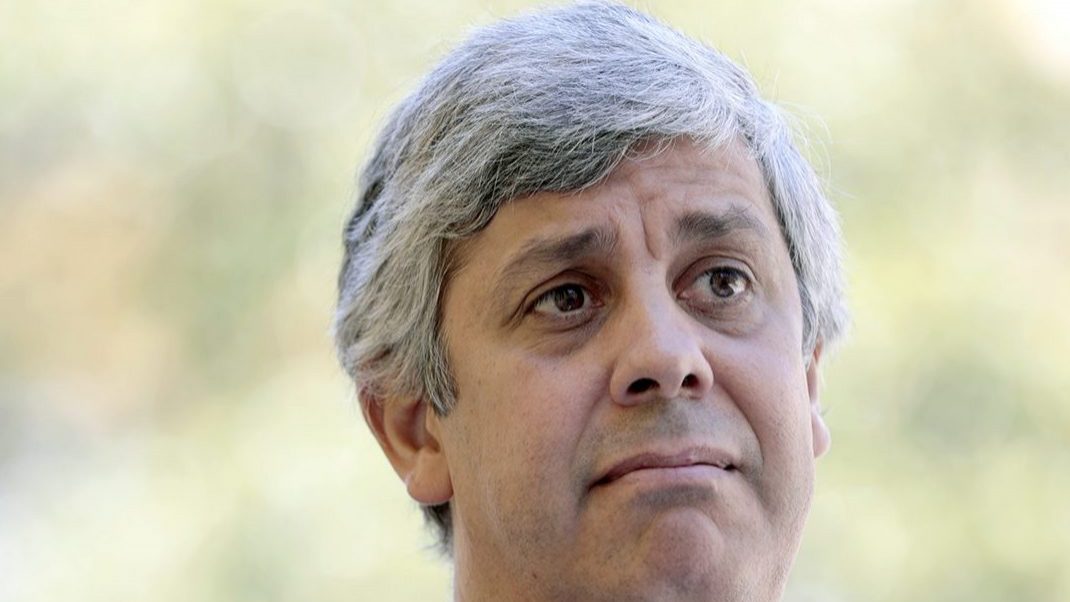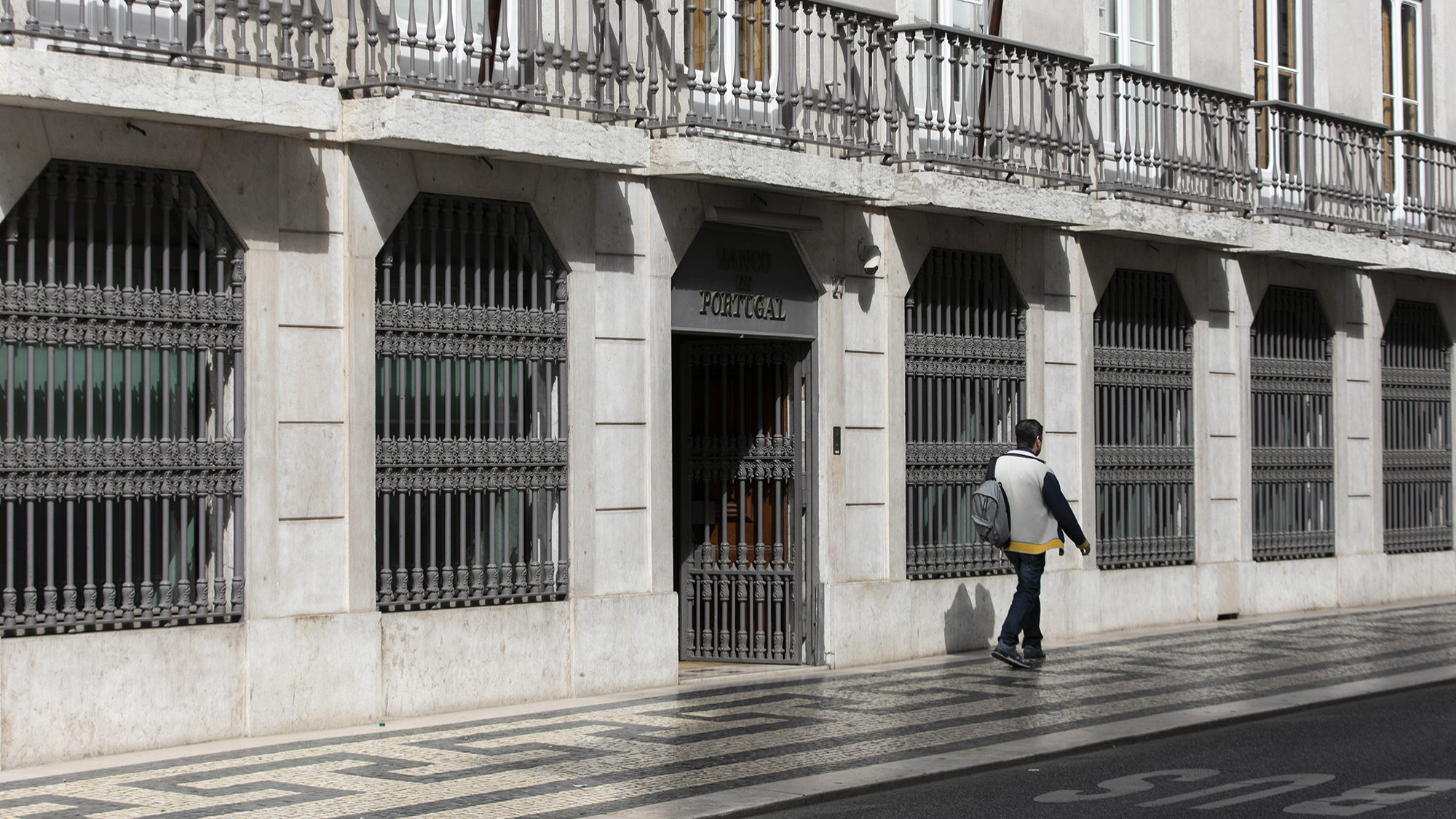António Costa announces a new Government this Wednesday
Fernando Medina, António Costa e Silva and Duarte Cordeiro are expected to be some of the new ministers in António Costa's third Government. The smaller Executive is due to take office next week.
António Costa’s third PS Government promises to be “shorter and leaner”, after the second Executive was the longest ever. This Wednesday night, the current and future Prime Minister will deliver the new Government’s composition to the President of Portugal. Marcelo Rebelo de Sousa is expected to take office on March 30. But to whom?
From the outset, the Prime Minister, reinforced by an absolute majority given by the Portuguese in his third election, has tried to curb any speculation about the members of the next Executive. A memo from his office published after the early parliamentary elections stated that any news of Costa’s intentions that did not result from statements made by him or from a memo from his office “are pure speculation”.
Only one thing came out of his mouth: the Government will be “shorter and leaner”, António Costa said just before winning the election, calling the new Executive a “task force for recovery” – this when in 2019 he argued that “Governments are not measured by the number of members”. “For these times we must have a shorter team, renewed, agile, with a new model of Government,” Costa has now argued, before the war.
This will mean, in principle, reducing the number of ministers (currently 19) and secretaries of state (currently 50), which will imply several departures: the first black woman to become minister, Francisca Van Dunem, minister of Justice (and of Internal Administration after Eduardo Cabrita’s resignation), was the only one to publicly assume that she asked to leave.
Augusto Santos Silva, Minister of Foreign Affairs, had also signalled that he wanted to leave at the end of the previous legislature, which under normal circumstances would have been in 2023. However, the legislature was interrupted with the lead of the 2022 Budget and, in the meantime, Russia invaded Ukraine, giving Santos Silva prominence and raising socialist voices to keep him, as reported by Público. Previously, the minister was nominated for president of the Assembly of the Republic and Nascer do Sol reported on Saturday that that is where he will go, being replaced by João Gomes Cravinho (current defence minister).
João Leão is expected to be replaced by Fernando Medina at the Ministry of Finance, as reported by ECO in late December. Medina lost the Lisbon local elections to Carlos Moedas and was free to join the government, and has been defending the PS’s economic policy. In an interview with RTP3 immediately after the elections (in which he came fifth in the Lisbon constituency), the socialist said he was available to the PS.
In the Ministry of Economy, uncertainty seems to be greater. After almost four years in this Ministry, Costa’s friend Pedro Siza Vieira (who was even appointed to the MFA) is expected to leave, according also to Nascer do Sol, and António Costa e Silva, the author of the strategic vision for the Recovery and Resilience Plan (PRRP), will be part of that Ministry, thus ceasing to lead the PRR monitoring commission. With a super-ministry of European funds, Cohesion Minister Ana Abrunhosa (who has shown her willingness to continue) should remain, combining her ministry with that of Nelson de Souza (Minister of Planning), who should leave.
Pedro Nuno Santos is certain to continue at the Ministry of Infrastructure and Housing, as well as Mariana Vieira da Silva at the Presidency of the Council of Ministers, and may officially become António Costa’s number two. With João Pedro Matos Fernandes leaving the Ministry of the Environment, Duarte Cordeiro, current Secretary of State for Parliamentary Affairs, will become Minister of the Environment (he was councillor for Urban Hygiene and Proximity Structures at Lisbon City Council), and may include the Sea and Agriculture, but lose energy policy to the Ministry of the Economy.
Ana Catarina Mendes, the current parliamentary leader of the PS (a position that will remain vacant with no obvious successor), will jump from Parliament to Minister of State and Parliamentary Affairs, acting as a bridge between the government and the parliamentary group in a legislature with an absolute majority. If her brother, António Mendonça Mendes, continues as Secretary of State for Fiscal Affairs, we will have two family members in the same government, an option much criticised at the time of the “familygate” controversy.
In the other Ministries, there are still several doubts. It is not known who will go to the Ministry of Defence – the name of Ana Catarina Mendes was even discussed – or to the Ministry of Justice, for which the name of Alexandra Leitão, the current Minister of Public Administration, was mentioned, or to the Ministry of Internal Administration, one of the most difficult. The continuation of Ana Mendes Godinho at the head of the Ministry of Social Security is not certain, nor is the appointment of Tiago Brandão Rodrigues, current Minister of Education, as Minister of Higher Education – the name of Sampaio da Nóvoa, former candidate for President of the Republic, has been circulated.
It is not guaranteed, but Marta Temido’s continuation as Health Minister is likely. Temido enjoys the status of the most popular minister in the Government due to her two-year management of the pandemic, but according to Expresso she had not yet decided last week whether or not she would continue in the Executive. According to the weekly, in culture Graça Fonseca is likely to be replaced by Joana Gomes Cardoso, president of EGEAC, or André Moz Caldas, current secretary of state for the Presidency of the Council of Ministers. José Luís Carneiro, deputy secretary-general of the PS, may join the government, but the ministry is not yet determined.
Another doubt is which independents Costa will be able to attract to the Government now that he has an absolute majority and is not dependent on the “geringonça” (conservative party). Not only may it be easier to attract private sector personnel, but it may also give a sign of openness to a majority Government: “An absolute majority is not an absolute power”, said the leader of the PS in his victory speech. António Costa e Silva may be considered an independent, but his collaboration with the PS Executive has already begun in 2020.


